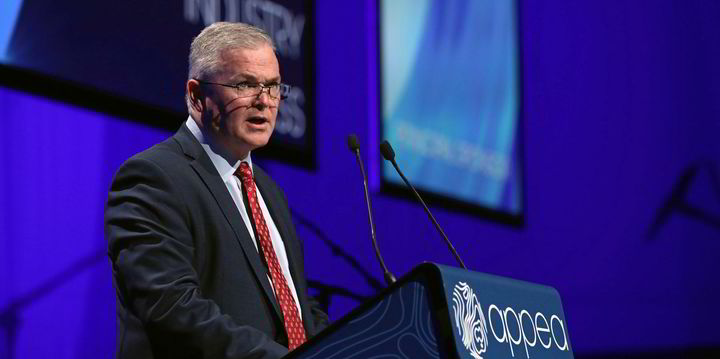Australia’s Santos and Woodside Energy, which have proposed a multi-billion dollar merger, are forging ahead with individual carbon capture and storage (CCS) schemes following newly introduced legislation that facilitates the cross-border transfer of CO2.
Santos on Monday confirmed that its plans to expand the Moomba CCS project are gaining momentum with the signing of a new memorandum of understanding (MoU) with Japan’s JX Nippon Oil & Gas Exploration Corporation (JX) and ENEOS Corporation that paves the way for a joint feasibility study to evaluate the potential to capture, transport and sequester emissions from Japan, supporting expansion of the Moomba CCS project.
The MoU seeks to jointly identify and define commercial and investment opportunities covering the potential importation of up to 5 million tonnes per annum of CO2 by 2030, 10 million tpa by 2035 and 20 million tpa by 2040 from Japan to the Moomba CCS project, via either Port Bonython in South Australia or Gladstone in Queensland.
The operator said aggregation and management of carbon at Moomba would also support Santos’ Energy Solutions low-carbon fuels ambitions and complements current studies with Japan’s Tokyo Gas and Osaka Gas for potential low-carbon e-methane production in Australia’s Cooper basin. This would facilitate the export of e-methane, made by combining green hydrogen with CO2 obtained from industrial emissions or direct air capture in a circular economy.
Santos chief executive Kevin Gallagher said the targets set for the study with JX and ENEOS demonstrate the enormous potential of Moomba as a decarbonisation and low-carbon fuels hub, and as an exciting new industry for South Australia.
“If we progress to the next stage, this collaboration could potentially extend the life of the Cooper Basin for another 55 years, keeping it at the centre of a modern Australian energy industry and supporting hundreds of well-paying, skilled and secure jobs for another three generations and beyond,” said Gallagher.
Article continues below the advert
The first phase of the Moomba CCS project is 75% complete with first injection on track for 2024. Moomba CCS is targeting about US$24 per tonne lifecycle breakeven storage costs, which Santos claims will make it one of the lowest-cost CCS projects globally.
The project will have capacity to store up to 1.7 million tpa of CO2, which is equivalent to delivering yearly more than 25% of the total emissions reduction achieved in Australia’s electricity sector over the past year to March 2023.
“The CO2 target set for 2040 in this study is equivalent to delivering — every year — triple the total emissions reduction achieved in Australia’s electricity sector last year. It also equates to around two-thirds of Santos’ total annual Scope 3 emissions today or almost four times our current annual Scope 1 and 2 emissions — it’s huge,” added Gallagher.
“There is surging demand for carbon abatement technologies as our region strives to meet net-zero ambitions. Australia is in a prime position to drive circular economies using its vast carbon storage and renewable energy resources. This combination will make Australia not only a renewable energy superpower, but we can also be a decarbonisation and low-carbon fuels superpower.”
Santos recently signed MOUs with APA and ADNOC as it seeks to build out a network of CO2 pipeline and other infrastructure supporting a new carbon capture and storage industry in Australia that could decarbonise not only the domestic economy, but regional economies as well.
Meanwhile, Woodside has signed a non-binding MOU with four Japanese companies to enable studies of a potential cross-border CCS value chain between Japan and Australia.
Woodside will collaborate with Sumitomo Corporation, JFE Steel Corporation, Sumitomo Osaka Cement and Kawasaki Kisen Kaisha to study the capture, storage and transportation of carbon dioxide emissions from the Setouchi and Shikoku regions of Japan and the injection and storage of the CO2 at Australian storage sites.
The Australian company said the MOU reflects the demand for large-scale decarbonisation solutions and highlights the unique geological advantages of Australia with subsurface characteristics that are highly suitable for large scale CCS projects.
“The opportunity for Australia and Woodside is to use our natural advantages to progress investment in CCS and assist our regional neighbours as they decarbonise heavy industry,” commented Woodside executive vice president Shaun Gregory.
“We welcome the federal government’s recent passing of legislation to support the transportation and sequestration of CO2 and development of Australia’s CCS industry.”

